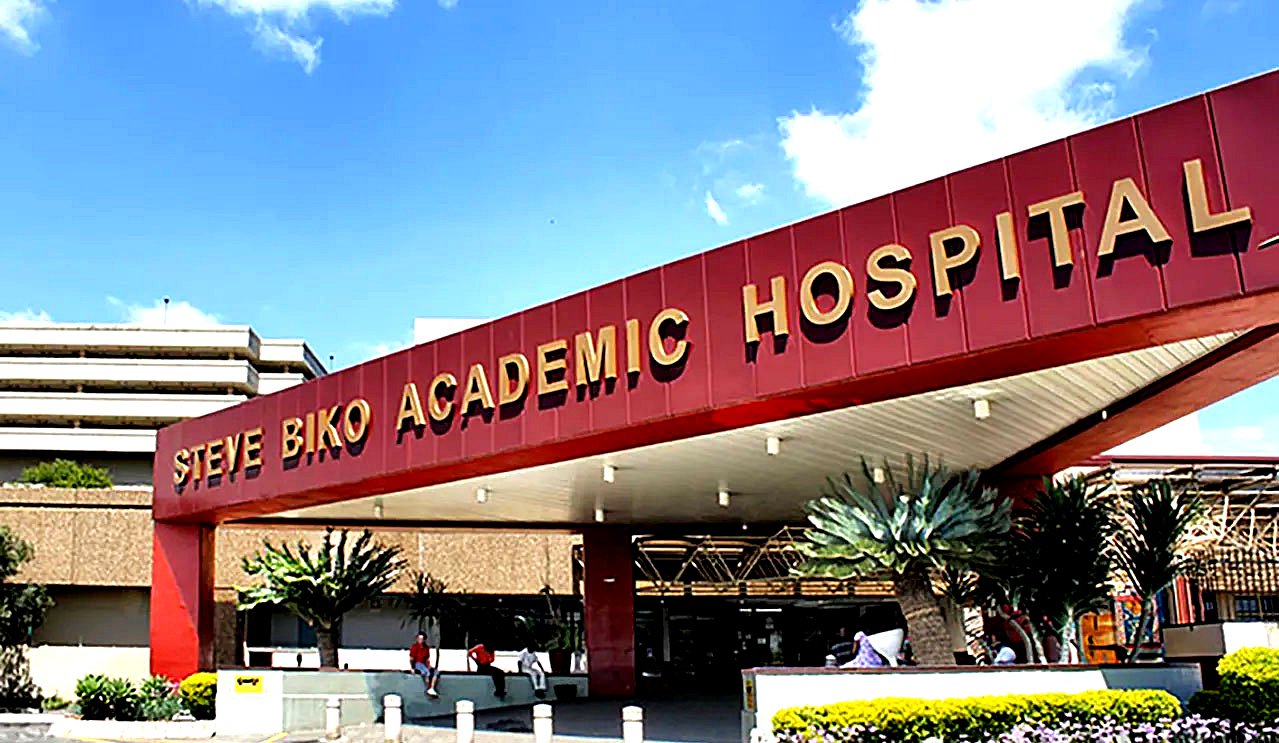Two hospital floors housing critical services at the Steve Biko Academic Hospital (SBAH) in Pretoria were evacuated over the weekend so work could be carried out on failing electrical systems.
The hospital’s emergency, intensive care and high care units were out of service during the shutdown, as was the National Health Laboratory Service laboratory based at the hospital.
A hospital insider told Daily Maverick, “What it meant was that 135 beds were no longer available over the weekend. The casualty department became a makeshift unit inside one ward on another floor. There were no patients apart from a few walk-ins. No CT scanning could be done either. Staff said they had no idea about the shutdown and why they had been moved.”
She described a chilling silence at the hospital as the casualty department, which is usually frenetic at weekends, was unable to serve the capital city and surrounding areas.
Less than three months ago, President Cyril Ramaphosa visited the hospital and lauded it as “the future”, saying it was NHI-ready.
The insider said the hospital was placed on a divert notice during the shutdown, which kept being extended. Emergency services had to scramble to get critically ill patients to nearby district and regional hospitals, including Tshwane and Mamelodi hospitals.
Tshwane Hospital, which is less than a kilometre away from Steve Biko Hospital, bore the brunt of the disorganisation as it tried to accommodate patients it simply was not equipped to handle.
/file/dailymaverick/wp-content/uploads/2025/09/Hospital1.jpg)
Staff at Steve Biko Academic Hospital said they “found out second-hand” about the shutdown, meaning no adequate preparation or contingency could be done as the crisis unfolded.
Overburdened
“I arrived on shift to find out only then about the situation. Patients who needed ICU care at Steve Biko were just not getting sufficient care. We had to phone around to other hospitals that were also overburdened and themselves not equipped to deal with patients needing specialised care,” said a doctor, who did not want to be identified.
He said he believed that patient care was compromised.
“A critically ill patient had to be intubated and ventilated throughout the night, but she should have been at Steve Biko in a high-care or ICU bed.
He said he had heard from colleagues that three patients had died during the shutdown weekend. “I can say it is because they didn’t get the care they should have got.
“You cannot shut down an entire emergency unit, have no proper communication and contingencies and call that a maintenance plan.
“For this kind of thing to go on day after day in some form or another is disheartening. And the administrators and middle management simply won’t acknowledge this is not normal. They don’t care about patients — it’s depressing. It’s not why I became a doctor, and not why I stay in the public health sector.
“Our seniors, like our consultants and other clinicians, are terrified by these administrators. They’re too scared to stand up to tell them to call a spade a spade: that things are failing.
“There is also an odd culture of pitting hospitals against each other instead of having a system for cooperation. And there’s a culture of bullying — it’s a very toxic system,” he said.
The switch from having medical superintendents running hospitals to putting CEOs — with or without a medical background — at the helm came about in 2013 under Health Minister Aaron Motsoaledi’s first tenure. It was meant to professionalise the public health service and bring stronger management strategies to the service. However, its critics, including the doctor who spoke to Daily Maverick, say it’s had the opposite effect.
“Now you can’t change a lightbulb in a hospital without a tender,” he said. “And you have tendering systems that are open to corruption, which means everything is costing the taxpayers more. Meanwhile, we are told there’s no money to employ more doctors, so we have fewer doctors trying to help more patients.
“Health workers and clinicians who understand patients’ need to be part of the picture of decision making.”
Ireen Manyuha from the Gauteng Department of Health said: “The electrical system at SBAH is outdated, and the changeover system upgrade [involving repairs to a generator] for the power sources was necessary to ensure continuity of services during periods of power supply interruptions.
“Safety measures have been confirmed after the upgrade was successful and power supply was restored on Saturday, with patients periodically returned to the wards in Level 4 between Sunday and Monday.” DM




 The Steve Biko Academic Hospital in Pretoria. (Photo: Wikipedia)
The Steve Biko Academic Hospital in Pretoria. (Photo: Wikipedia)